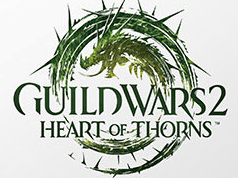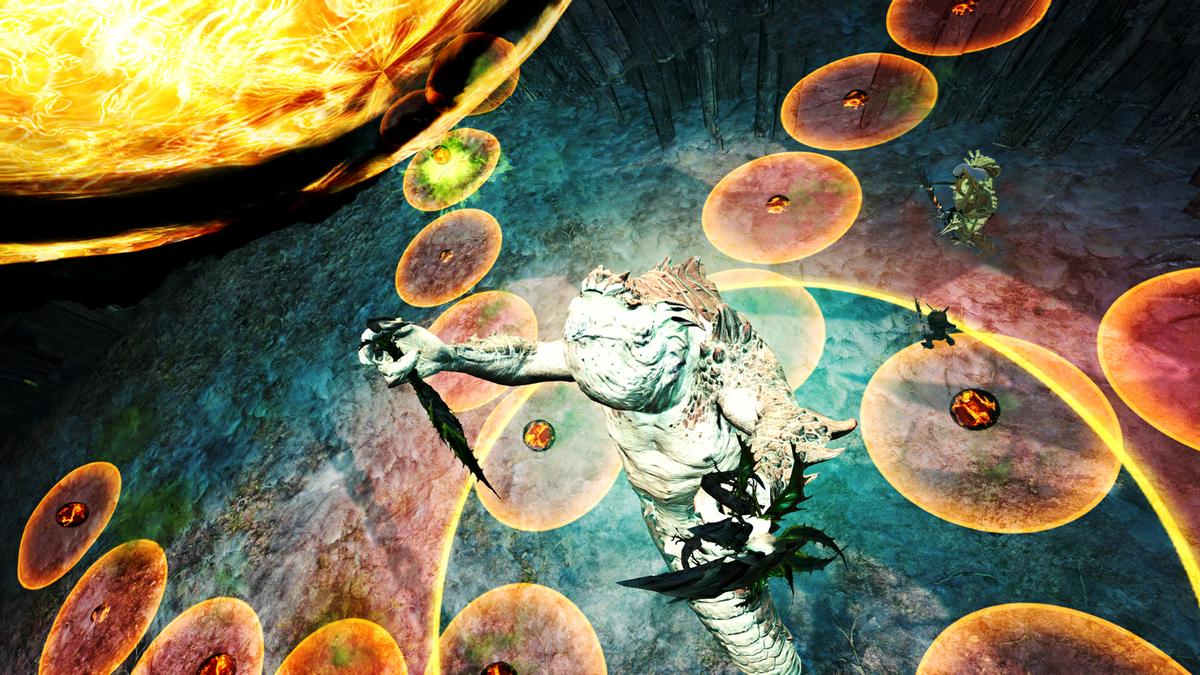Guild Wars 2 Review: Three Weeks Later
Neil Kewn (Murxidon) – OnRPG journalist
Guild Wars 2 is finally here. Arguably the most anticipated MMORPG of 2012 and a game many have been praying will give the industry a much-needed shot in the arm, how can ArenaNet’s biggest undertaking live up to expectation? A difficult task, but by breaking down the ageing gameplay mechanics of its peers, it takes what players have come to expect from the genre and flips it on its head. It’s fresh, modern and innovative. A game that both understands and respects the player, in a world as sprawling as it is beautiful.
The original Guild Wars was an ambitious effort that proved itself to be a viable alternative, or at least companion, to World of Warcraft. Its sequel, set 250 years later, is a game that some residents of Azeroth have been crying out for. Gone is the quest log that was once populated with the same kill and collect tasks, instead a considerable amount of your experience is gained from a random event system not dissimilar to that in RIFT. Wander around the world of Tyria and you’ll find at least one dynamic scenario that can have an impact on the game world, whether it be escorting a caravan to its destination on a long a dangerous road or collecting grapes for a young wine-maker.
Nearby players are alerted if they are close enough, or a panicking non-player character can plead for assistance. It’s an incredibly social experience that rewards everybody for taking part. The more familiar kill, collect, gather quests are disguised as tasks for an NPC in a particular area. Help out enough and you are rewarded with experience and the option to purchase special items with the Karma gathered. These are often coupled with dynamic events, advertently or not, and there’s no running backwards and forwards between areas to pick up and drop off quests.
Although in a world like Tyria that wouldn’t necessarily be a bad thing. The land is a beautiful mixture of art design and technical prowess, and it’s one that you are actively encouraged to explore and get lost in. Places of note, crafting materials and area-wide vistas can act as a helpful top up to experience, whether relevant to your story or not. The whole levelling system is designed to cut out the grind and reward players suitably as they progress through the world. It’s familiarly different. Questing and gaining experience isn’t the tried and tested formula here, masked under dynamic events and NPC tasks that will resonate with fans of the genre and welcome those who aren’t.
The personal story has been one of the biggest selling points of Guild Wars 2. A more cinematic and involved narrative for each player than those found at dynamic events, your personal story will steer you through the game up until the level cap of 80. Picking from one of the five races will not determine the tale you undertake, but a series of questions answered at the Aion-based character creation can influence it. Decisions made during the instanced quests can also shape and personalize it further ensuring distinctions between your story and that of a friend.
Combat in Tyria is handled differently. Attacks are unique to whatever weapon you have equipped and your profession, encouraging players to try out different weapon types to find the one most suitable to their play style. You might shun the area of effect spells of staves for the quick, localized attacks tied to the dagger. Extra abilities are dependent on your profession and what you choose to spend your skill points on. Awarded once each level and littered amongst challenges throughout the world, these extra skills populate the last five slots on the action bar and can be swapped around anytime whilst out of combat (excellent when switching between PvE and PvP). Traits act as the more familiar “talent tree” mechanic, with spent points increasing the power, toughness, vitality and other attributes of your character.
ArenaNet has always discouraged the holy trinity of tank, damage and healer classes during their promotion of Guild Wars 2. Interestingly, each class has a selection of healing spells at their disposal. Some professions are more attuned to the healing dynamic with more generalized spells and the ability to heal other players, but it means each adventurer can hold their own in battles much more so than usual. And death doesn’t actually mean death in GW2, at least not initially. Take enough damage and you will enter a downed state, where yet another set of abilities pop up that attack enemies and restore your health. Defeat the enemy to “rally” back to your feet, or wait for a kind (or desperate) player to revive you on the battlefield.
Throughout the PvE element of Guild Wars 2, ArenaNet has encouraged co-operation – not competition. Experience is awarded to anyone who takes part in defeating an enemy and crafting nodes are available to all, not on a first come, first serve basis. They won’t deplete after one player has mined, chopped and picked at it. The Trading Post is also now open, much to the delight of crafters wanting to shift the results of their recipes. From cooking and weaponsmithing to artificers and huntsmen, they are the standard disciplines that act as a new source of income and experience.
Player versus player combat comes in two flavours. Structured PvP, where more traditional game modes pit players against each other to achieve glory and rank, and the controlled mayhem that is World versus World. Here, three different servers battle in an open world for resources. Hundreds of players are engaged in a constant war against each other, besieging towers and building weapons. It’s an overwhelming and confusing experience at first, and early on all I could contribute was to run around manically spamming attacks. Nevertheless, with each player having their level dynamically adjusted to 80, every participant in Guild Wars 2’s PvP is on an equal footing.
In Guild Wars 2, ArenaNet has trimmed the fat from a genre that’s grown to be as large and cumbersome as the fantastical trolls that inhabit most of its competitor’s virtual worlds. It doesn’t revolutionize MMO gaming. It takes what makes these games so compelling and just makes it better. It’s an exceedingly polished title that transports players into a world so lush and inviting, the likes of which hasn’t been seen in years. I disagree with the notion that this is a game for people who hate MMOs, it’s unlikely that you will be swayed despite its innovativeness, but fans of the genre are in for a real treat. A game that keeps on giving, whilst you give nothing back.








